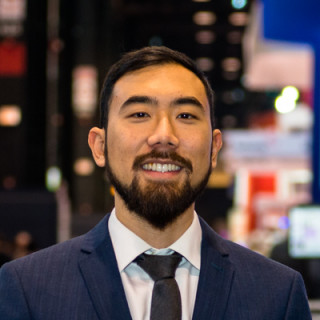It was 8 p.m. in New York City when Dr. Machelle Allen received a phone call from her 10-year-old son. At the time an ob/gyn specialist at NYC Health + Hospitals, Dr. Allen was engrossed in a mine of ultrasounds, having already provided a full day of patient care. She now had her son on the phone asking for help with his fifth-grade homework.
The moment prompted self-reflection and ultimately served as a kind of coup de grace to a career focused wholly on clinical practice, said Dr. Allen. The moment beckoned her instead toward clinical leadership.
“When my son called, I thought, ‘I can’t be in the office reading ultrasounds while my son’s doing his homework,’” she said. “So I made the decision to shift into a more executive, administrative position.”
The transition was anything but easy; she applied to a round of posts, all to no avail. Eventually, she turned to the chair of her department for advice. “I told him, ‘You know, I really want to make this switch, but I've not been able to land a job because I don't have the experience.’ And he said to me, ‘Machelle, if you want to make that switch, I want you to do it here at home among friends. I want you to be able to make your mistakes among the people who support you.’ And that was invaluable.”
Her chair then offered her the opportunity to grow under the auspices of a hospital community where she had already laid down roots. A dedicated effort to patient care and finding solutions to challenges on a system-wide level eventually paved the way for Dr. Allen to assume her current role as senior vice president and CMO at NYC Health + Hospitals. She regularly collaborates with a diverse network of clinicians, health officials, and business executives to ensure effective delivery of hospital services.
The market for physician leaders has grown substantially since Dr. Allen resolved to pivot her career path more than a decade ago. Executive search firms in 2017 estimated a 20% increase in the number of hospitals and health networks seeking to land a physician for an executive post. And the COVID-19 pandemic has only magnified that need, surfacing long-standing deficiencies and inequities in the health care system, according to Dr. Stephen Weber, executive vice president for clinical effectiveness and CMO of University of Chicago Medicine.
“The demand remains and is actually becoming even higher for provider organizations and other health care organizations, and the opportunities for physicians who want to pursue this are also expanding dramatically,” Dr. Weber said.
Dr. Allen agreed: “On a very high level, there is definitely a need for strong clinical leadership, especially as the world is changing, and … [for physicians] who know what decisions to make and how to lead not only their medical staff but the lay public.”
Still, crossing the threshold into an executive position in today’s climate is not without its challenges. Aspiring clinical leaders may be expected to excel in a broad range of areas that stretch beyond their typical responsibilities to encompass finance, regulation, and public health, Dr. Allen noted.
Dr. Allen pointed to several lessons she learned during her transition that proved to be critical in her development. The starting point: staying connected to an academic body. Whether it’s ob/gyn, surgery, or primary care, she stressed the importance of staying up to date on one’s specialty and understanding the direction in which it’s headed.
Another vital lesson she has carried with her is to reach out to mentors continuously. “If there's somebody in your institution, or in your field, whom you admire and respect, and they have attained a position that you think that you want to follow, don’t be shy,” she said. “It's an honor to have someone seek you out because they see something within you.”
She added that having the capacity to communicate and collaborate well with others, be they mentors or colleagues, is integral to leadership. She has found that “95% of the job is about personal relationships.”
Particularly for physicians just starting their career, Dr. Allen emphasized the importance of never shortchanging oneself. “You're much more valuable than you think you are,” she said. In recognizing personal value, the path to leadership becomes less about making huge steps and more an “organic metamorphosis,” within the context of guiding principles. In her case, those principles have been striving for excellence and holding herself accountable.
Perhaps most importantly, having a support system both within as well as outside of the work environment has helped Dr. Allen sustain a healthy career. “Support groups are really important because it's so easy to become isolated in your work, especially in medicine; physicians put in long hours, and so you really need the balance to your life,” she said.
For Dr. Weber, too, a reliable support network was essential in his formative years as an executive and remains one of the key factors to his work.
“I've been very fortunate to have worked in a place and with colleagues and mentors who understand that, as a physician leader, there's going to be things I don't yet have mastery of, that I'm still learning even to this day,” he said. “It's so helpful and so empowering if you work in a system and with colleagues who recognize that and are not judging you.”
His experience with networking has revealed it to be more a conduit of learning and understanding than immediate leverage for career growth. “Too often when people hear advice about the need to network, they think of it in terms of building up a team of supporters to advance their career,” he said. “But I think that the idea of networking is exposing yourself to a lot of different perspectives, a lot of different outlooks in terms of how people came into those roles.”
Dr. Weber also noted that the uncertainty of the pandemic has further heightened the need for leaders who are able to manage with incomplete information. An advantage for physicians as leaders, then, is that the ability to act with limited information is “one of the gifts” of clinical training. He continued, “I've seen so many young and even more senior physician leaders emerge during the pandemic, not always because of content expertise … but because they’ve been able to make serious decisions without complete information or guidance.”
In that respect, Dr. Weber has long viewed his administrative and leadership responsibilities as extensions of clinical care — a parallel that he holds very dear. He recognized leadership as a different kind of care, less hands-on, but nonetheless a means of helping patients and the community. Beyond a collection of skills and duties, leadership entails keeping the essence of what it means to be a clinician at the forefront, according to Dr. Weber.
“For physicians in general, a leader is somebody who understands the unique perspective that we have, the unique nature of our training, our experience, and the calling that we have to clinical care,” he said. “It doesn’t mean that we’ll always agree with every physician, but it’s an incredibly beneficial context to understand.”
Illustration by Jennifer Bogartz







